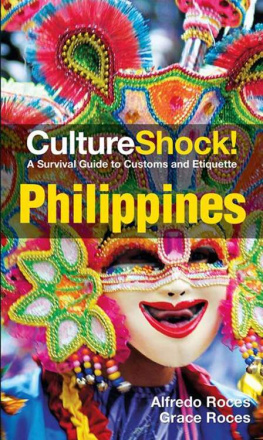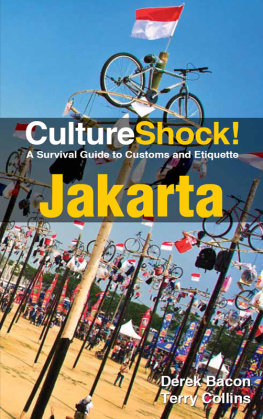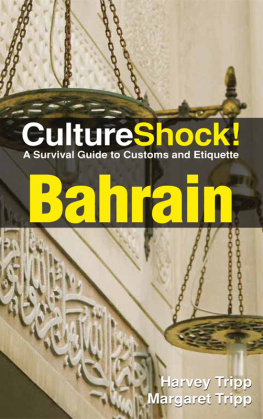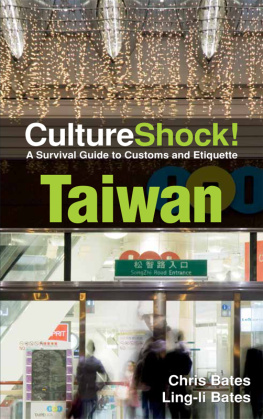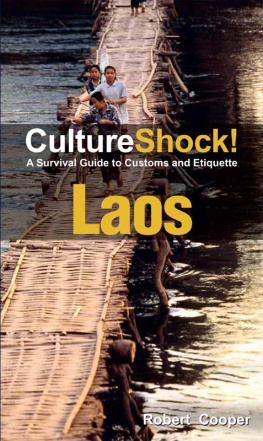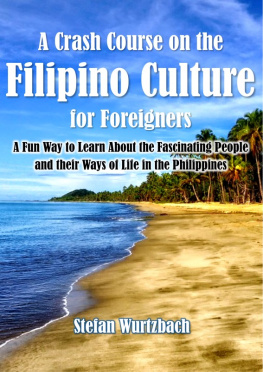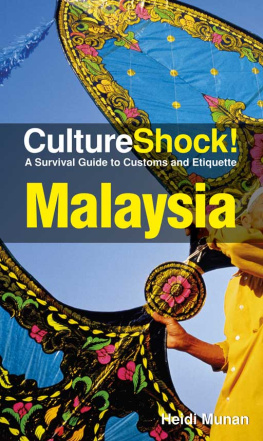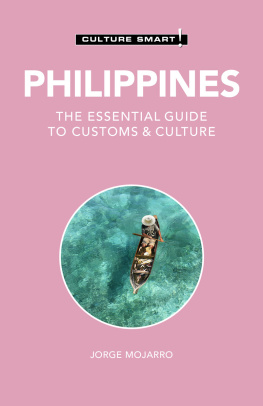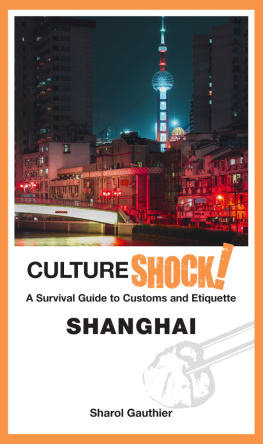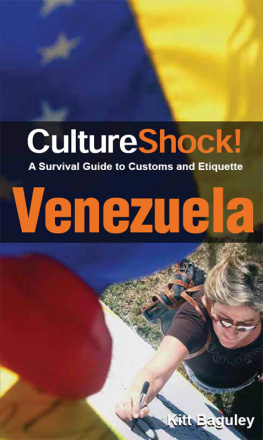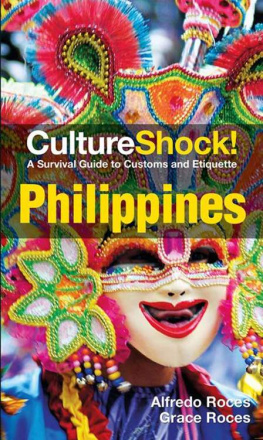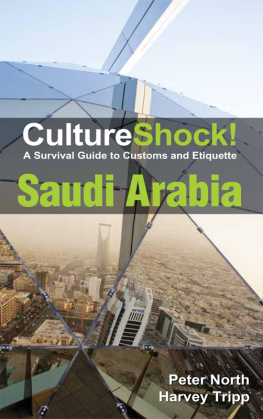
This 8th edition published in 2013
Reprinted 2014
Published by Marshall Cavendish Editions
An imprint of Marshall Cavendish International
1 New Industrial Road, Singapore 536196
First published in 1985 by Times Editions Pte Ltd, reprinted 1986, 1988. 1989, 1992, 1993; 2nd edition published in 1994, reprinted 1995 (twice), 1996, 1997, 1998 (twice); 3rd edition published in 1999, reprinted 2000 (twice); 4th edition published in 2002, reprinted 2003 (twice); 5th edition published in 2004; 6th edition published in 2006, reprinted 2008, 2009; 7th edition published in 2009, reprinted 2010.
2013 Marshall Cavendish International (Asia) Private Limited
All rights reserved
No part of this publication may be reproduced, stored in a retrieval system or transmitted, in any form or by any means, electronic, mechanical, photocopying, recording or otherwise, without the prior permission of the copyright owner. Request for permission should be addressed to the Publisher, Marshall Cavendish International (Asia) Private Limited, 1 New Industrial Road, Singapore 536196. Tel: (65) 6213 9300, fax: (65) 6285 4871. E-mail:
The publisher makes no representation or warranties with respect to the contents of this book, and specifically disclaims any implied warranties or merchantability or fitness for any particular purpose, and shall in no events be liable for any loss of profit or any other commercial damage, including but not limited to special, incidental, consequential, or other damages.
Other Marshall Cavendish Offices:
Marshall Cavendish Corporation. 99 White Plains Road, Tarrytown NY 10591-9001, USA Marshall Cavendish International (Thailand) Co Ltd. 253 Asoke, 12th Flr, Sukhumvit 21 Road, Klongtoey Nua, Wattana, Bangkok 10110, Thailand Marshall Cavendish (Malaysia) Sdn Bhd, Times Subang, Lot 46, Subang Hi-Tech Industrial Park, Batu Tiga, 40000 Shah Alam, Selangor Darul Ehsan, Malaysia
Marshall Cavendish is a trademark of Times Publishing Limited
National Library Board, Singapore Cataloguing-in-Publication Data:
Roces, Alfredo R.
Culture shock! Philippines : a survival guide to customs and etiquette / Alfredo Roces, Grace Roces. Singapore : Marshall Cavendish Editions, 2013.
pages cm
ISBN : 978-981-4484-01-5
eISBN : 978 981 4634 90 8
1. Philippines - Guidebooks. 2. Philippines - Description and travel. 3. Philippines - Social life and customs. 4. Etiquette - Philippines. I. Roces, Grace, author. II. Title.
III. Series: Culture shock!
DS660
915.9904 -- dc23 OCN839360828
Printed in Singapore
Photo Credits:
All black and white photos from Alfredo Roces except pages (Getty Images). All colour images from Getty Images. Cover photo: Getty Images
All illustrations by TRIGG
ABOUT THE SERIES
Culture shock is a state of disorientation that can come over anyone who has been thrust into unknown surroundings, away from ones comfort zone. CultureShock! is a series of trusted and reputed guides which has, for decades, been helping expatriates and long-term visitors to cushion the impact of culture shock whenever they move to a new country.
Written by people who have lived in the country and experienced culture shock themselves, the authors share all the information necessary for anyone to cope with these feelings of disorientation more effectively. The guides are written in a style that is easy to read and covers a range of topics that will arm readers with enough advice, hints and tips to make their lives as normal as possible again.
Each book is structured in the same manner. It begins with the first impressions that visitors will have of that city or country. To understand a culture, one must first understand the peoplewhere they came from, who they are, the values and traditions they live by, as well as their customs and etiquette. This is covered in the first half of the book.
Then on with the practical aspectshow to settle in with the greatest of ease. Authors walk readers through how to find accommodation, get the utilities and telecommunications up and running, enrol the children in school and keep in the pink of health. But thats not all. Once the essentials are out of the way, venture out and try the food, enjoy more of the culture and travel to other areas. Then be immersed in the language of the country before discovering more about the business side of things.
To round off, snippets of basic information are offered before readers are tested on customs and etiquette of the country. Useful words and phrases, a comprehensive resource guide and list of books for further research are also included for easy reference.
CONTENTS
INTRODUCTION
Life is one big road with lots of signs. So when youre riding through the ruts, dont complicate your mind. Flee from hate, mischief and jealousy. Dont bury your thoughts, put your vision to reality. Wake up and live!
Bob Marley
Most Westerners who come to the Philippines are pleasantly surprised to find all the trappings of the American lifestyle visibleHollywood films, discos, an English-speaking media with a press fond of American journalistic expressions, fast-food chains, supermarkets, five-star hotels, cellphones, computers, Christian churches and credit cards. Its all familiar.
A delayed shock follows soon after. The Western visitor may find he is speaking the same language but not communicating at all. With a sinking feeling he realises he is not in America or England or Canada, but in an entirely different world. Feeling betrayed, the Westerner retreats into his own shell, sharing this grievance with fellow Westerners in the safety of private social clubs of particular nationalities.
In other parts of Asia, language, customs and religions clearly establish the difference. Such Asians make no bones about their alien nature; but Filipinos mislead with a Western veneer. In fact, Asians too find Filipinos enigmatic; sometimes Western, sometimes familiarly Asian, always neither one nor the other. Filipinos themselves, in a quandary about their own identity, employ different time frames for Americans (American time), fellow Filipinos and other strangers.
The differences can seem threatening, as newspaper articles reporting how one man kills another for staring at him suggest. Some aspects of Filipino life will probably always remain strange to non-Filipinos. The Westerner puts on a serious scowl and tone when he wishes to make a very important point, whereas the Filipino delivers his most relaxed smile, or even loudest laugh, with his vital message. Filipino doctors illustrate this point best. Westerners may be distressed when told they have a very serious health problem by a doctor who appears to be enjoying the telling. This is not callousness, but an accepted bedside manner that seeks to ease anxiety and soften a hard blow. The Filipino laughs, literally laughs, at his troubles; it does not mean he is enjoying himself. This seemingly strange culture has its roots in a dim pre-colonial history, and in Spanish and American colonisation. However, the environment becomes less hostile if one can see danger signs, recognise friendly overtures and manage appropriate gestures at the right moments.
In the Philippine setting, Westerners may find sensing correct behaviour complicated because Filipinos, like most Asians, stress public harmony and overt conviviality. The faintest indication of conflict is readily buried. Direct confrontation is frowned upon and regarded in the worst light. Someone will back off or divert the antagonists. Public conflict is taboo as the ensuing loss of face would lead to wider trouble. The belligerent and aggressive may be feared, but never respected. Failing to see any conflict, the Westerner will miss reading long-term repercussions into an incident. In such highly volatile situations, a foreigner may say the wrong thing, make the wrong gesture and trigger a public explosion which, once in the open, requires vindication of honour or face at any cost.
Next page
